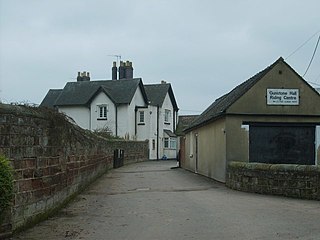Related Research Articles
General Sir Charles Howard KB, styled The Honourable from birth, was a British soldier and politician.
Major General Henry Conyngham of Slane Castle was an Irish soldier and politician.

Lieutenant General Thomas Fowke, also spelt Foulks, circa 1690 to 29 March 1765, was a British military officer from South Staffordshire, who was Governor of Gibraltar from 1753 to 1756, and twice court-martialled during his service. The first followed defeat at Prestonpans in the 1745 Jacobite Rising, when he was acquitted. As Governor, he was tried again for his part in the 1756 Battle of Minorca, a defeat that led to the execution of Admiral Byng.
Lieutenant-General Alexander Irvine or Irwin was a British Army officer.
General Sir Philip Honywood KB was a British Army officer.
General Gervais Parker was a British Army officer. For the final decade of his life, he served as Commander-in-Chief of the Royal Irish Army during the reign of George II.

Brigadier-General Thomas Paget was a British Army officer and politician who sat in the House of Commons from 1722 to 1727. He was the ancestor of the Paget family, Marquesses of Anglesey.
Brigadier-General William Newton was an officer of the British Army.
Lieutenant-General William Barrell was an officer of the British Army.
Lieutenant-General Edward Pole was an officer of the British Army.
Lieutenant-General John Folliot or Folliott was an officer of the British Army.
Lieutenant-General Thomas Howard was an officer of the British Army and the ancestor of the family of the present Earls of Effingham.
Major-General Charles Jefferyes was an officer of the British Army.
Lieutenant-General Robert Napier was an officer of the British Army.
Major-General Richard O'Farrell was an officer of the British Army.
Brigadier-General William Graham was a British Army officer from Balliheridon, county Armagh, Ireland.
Major-General Paul de Gually was a French Huguenot soldier who followed a career with the British Army after his exile from France.
Lieutenant-General Thomas Meredyth or Meredith, of Chelsea, Middlesex, was an Irish officer of the British Army and a politician who sat in the Parliament of Ireland from 1703 to 1719 and as a Whig in the British House of Commons from 1709 to 1710..
Colonel Sir Robert Douglas of Glenbervie, 3rd Baronet was a Scottish soldier.
Lieutenant-General Charles Sybourg was a British Army officer.
References
![]() This article incorporates text from this source, which is in the public domain :Historical Record of the Thirty-Sixth, or the Herefordshire Regiment of Foot by Richard Cannon (1853) pp. 114-115.
This article incorporates text from this source, which is in the public domain :Historical Record of the Thirty-Sixth, or the Herefordshire Regiment of Foot by Richard Cannon (1853) pp. 114-115.
- ↑ Charles Dalton, English Army Lists and Commission Registers 1661-1714, vol. 4 (1898) p. 136.
- 1 2 Dalton, English Army Lists, vol. 5 (1902) Part II, pp. 54-55, n. 3
- ↑ Dalton, English Army Lists, vol. 5 (1902) Part I, p. 198.
- ↑ Dalton, English Army Lists, vol. 6 (1904) p. 194.
- ↑ Richard Cannon, Historical Record of the Twenty-Second, or the Cheshire Regiment of Foot (1849) p. 53.